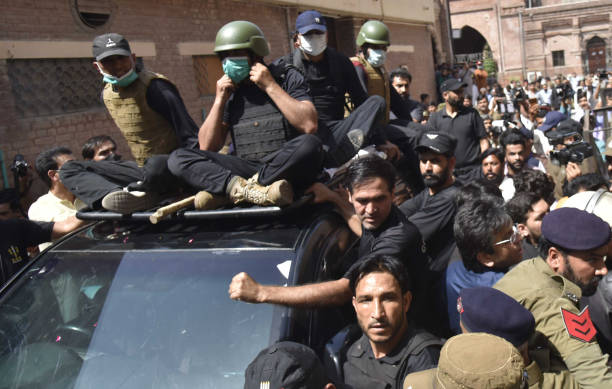Safeguarding Prisoner Rights: Analyzing Concerns Raised by Bushra Bibi
In a recent statement that has garnered attention, Bushra Bibi, wife of former Prime Minister of Pakistan Imran Khan, expressed concerns over the safety and well-being of her husband during his incarceration at Attock jail. The gravity of her words highlights the need to explore prisoner rights, safety, and the legal obligations of the Punjab government. This blog post delves into the implications of her statement and the broader context of ensuring prisoner welfare within the legal framework.
Context of the Statement
The statement made by Bushra Bibi brings to light the issue of prisoner safety, particularly for high-profile detainees. Her apprehensions about the possibility of poisoning underscore the potential vulnerabilities prisoners can face while in custody. This situation prompts an examination of the measures in place to protect inmates’ rights, regardless of their status.
Legal Obligations of Prison Authorities
The safety and well-being of prisoners are paramount responsibilities of prison authorities and the government. Imprisonment, regardless of the individual’s background, should not expose them to harm or dangers that compromise their health. The law mandates that prisoners are treated humanely, with access to adequate medical care, nutrition, and protection from any form of abuse or violence.

International Human Rights Standards
The concerns raised by Bushra Bibi also highlight the significance of adhering to international human rights standards, particularly those outlined in the United Nations Standard Minimum Rules for the Treatment of Prisoners (the Nelson Mandela Rules). These rules emphasize the importance of preserving prisoners’ physical and mental health, ensuring their safety, and affording them dignified living conditions.
Transparency and Accountability
Transparency and accountability play crucial roles in maintaining prisoner rights. Public statements from concerned parties, like Bushra Bibi, bring attention to potential issues within the prison system. It is the duty of the government and relevant authorities to address these concerns promptly, ensuring that prisoners’ rights are upheld and their safety is assured.
Legal Recourse and Advocacy
Prisoners and their families have the right to seek legal recourse and advocacy if they believe a detainee’s well-being is compromised. The legal system provides avenues to address these concerns, such as filing complaints, seeking court intervention, or engaging with human rights organizations.
Upholding Prisoner Welfare

The statement made by Bushra Bibi underscores the importance of prisoner safety, irrespective of their status or background. The legal system must ensure that detainees’ rights are protected, that they are treated with dignity, and that their safety is guaranteed. By adhering to national and international legal standards, promoting transparency, and fostering accountability, the government and prison authorities can uphold the principles of justice and ensure the well-being of those in custody.










